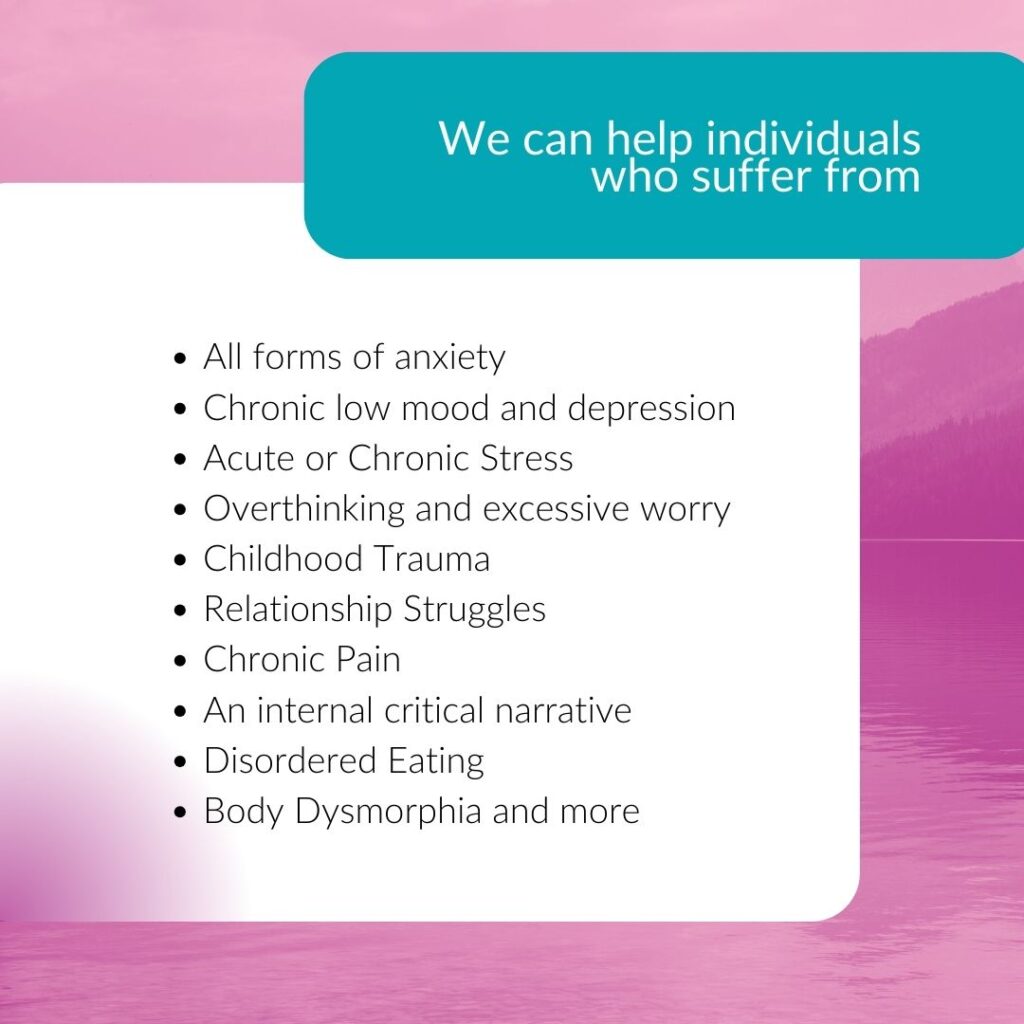There are many reasons why someone might seek to speak to a counsellor. What inevitably brings most
people to therapy is a desire to free themselves from pain and suffering and learn how to live a happier
life. Life certainly provides many ups and downs, and while that is a normal part of living, how we react
and how we cope can either help or hinder our progress towards living our best life possible.
It takes courage to come to counselling. It speaks to your desire to improve your situation and believe
that you can learn new things. You can learn how to cope in different ways. You can learn how to
respond to situations without having to react. You can also learn that through the process of learning
patience, acceptable tolerance, compassion, and kindness can be cultivated, which then provides the
building blocks necessary for growth.
Unravelling beliefs you have internalized and habits you have reinforced over the years takes time.
Anyone can get quick results, but long-lasting results and meaningful change happen in small but
powerful increments.
At Mind-Body-Soul we are interested in learning about you so we can help you achieve not only a
strong, supple body but also a flexible and healthy mind.

Our integrative and client-specific approach to counselling includes the following:
- Cognitive Behavioural Therapy (CBT)
- Emotionally Focused Therapy (EFT)
- Eye Movement Desensitization Reprocessing (EMDR)
- Internal Family Systems (IFT)
- Mindfulness and Yoga-Based Techniques
- Person-Centred Therapy
- Somatic-Based Therapy
Individual Therapy

Couples Therapy

LGBTQ+

